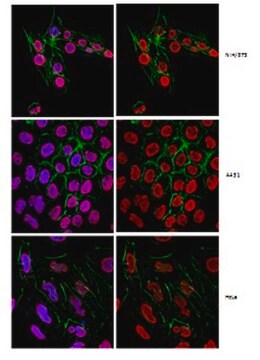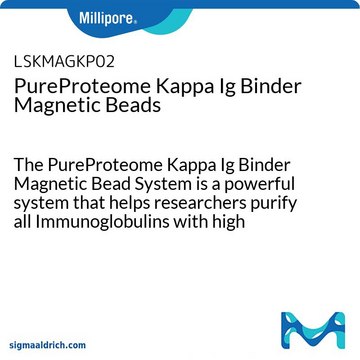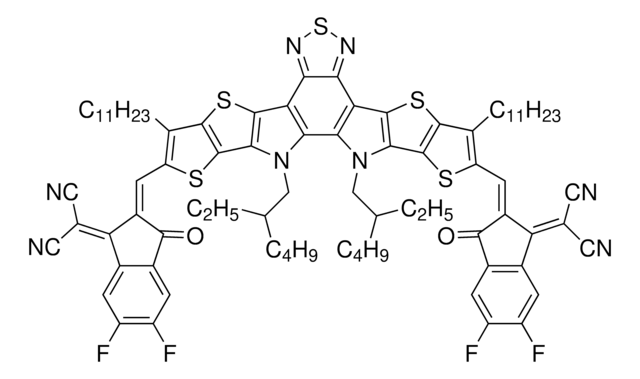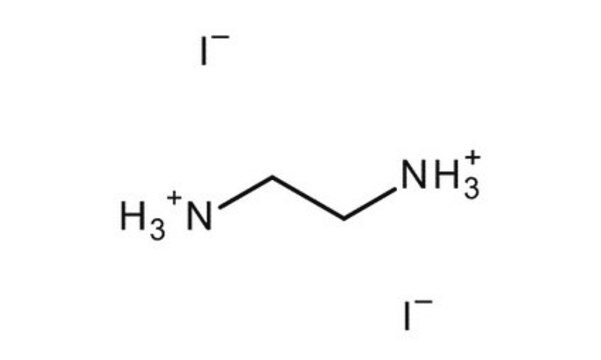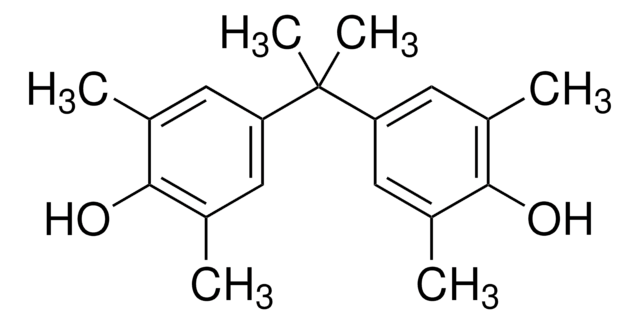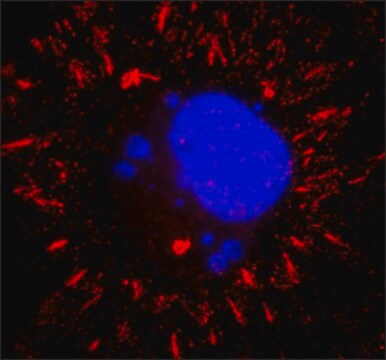MABF106
Anti-Viperin Antibody, clone MaP.VIP
clone MaP.VIP, from mouse
Synonyme(s) :
Radical S-adenosyl methionine domain-containing protein 2, Cytomegalovirus-induced gene 5 protein, Viperin, Virus inhibitory protein,endoplasmic reticulum-associated, interferon-inducible
About This Item
Produits recommandés
Source biologique
mouse
Niveau de qualité
Forme d'anticorps
purified antibody
Type de produit anticorps
primary antibodies
Clone
MaP.VIP, monoclonal
Espèces réactives
human, rat, mouse
Technique(s)
flow cytometry: suitable
immunocytochemistry: suitable
immunohistochemistry: suitable
immunoprecipitation (IP): suitable
western blot: suitable
Isotype
IgG2aκ
Numéro d'accès NCBI
Numéro d'accès UniProt
Conditions d'expédition
wet ice
Modification post-traductionnelle de la cible
unmodified
Informations sur le gène
human ... RSAD2(91543)
Description générale
Immunogène
Application
Immunoprecipitation Analysis: A representative lot was used by an independent laboratory in HepG2 cell lysate (Hinson, E., et al. (2008). JBC. 284(7):4705–4712).
Flow Cytometry Analysis: A representative lot was used by an independent laboratory in mouse liver, spleen, lung, and lymph node cells (Hinson, E., et al. (2010). J. Immunol. 184:5723-5731).
Immunocytochemistry Analysis: A representative lot was used by an independent laboratory in mouse spleen cells (Hinson, E., et al. (2010). J. Immunol. 184:5723-5731).
Inflammation & Immunology
Immunoglobulins & Immunology
Qualité
Western Blot Analysis: 1 µg/mL of this antibody detected Viperin in 10 µg of mouse macrophage stimulated with IFN gamma and LPS.
Description de la cible
Forme physique
Stockage et stabilité
Remarque sur l'analyse
Mouse macrophage stimulated with IFN gamma and LPS
Autres remarques
Clause de non-responsabilité
Vous ne trouvez pas le bon produit ?
Essayez notre Outil de sélection de produits.
Code de la classe de stockage
12 - Non Combustible Liquids
Classe de danger pour l'eau (WGK)
WGK 1
Point d'éclair (°F)
Not applicable
Point d'éclair (°C)
Not applicable
Certificats d'analyse (COA)
Recherchez un Certificats d'analyse (COA) en saisissant le numéro de lot du produit. Les numéros de lot figurent sur l'étiquette du produit après les mots "Lot" ou "Batch".
Déjà en possession de ce produit ?
Retrouvez la documentation relative aux produits que vous avez récemment achetés dans la Bibliothèque de documents.
Notre équipe de scientifiques dispose d'une expérience dans tous les secteurs de la recherche, notamment en sciences de la vie, science des matériaux, synthèse chimique, chromatographie, analyse et dans de nombreux autres domaines..
Contacter notre Service technique

